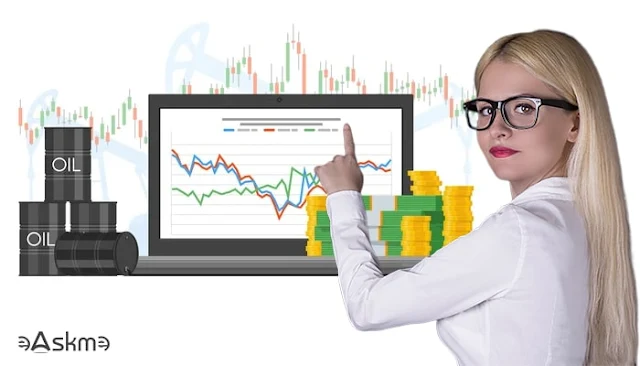In the fast-paced and volatile world of oil trading, effective risk mitigation strategies are crucial in ensuring profitability, stability, and sustainability for market participants.
This comprehensive article will explore the importance of risk mitigation strategies in oil trading, shedding light on their significance and the benefits they offer to market participants.
Oil trading has been tedious for beginners, and tools like https://oilprofit.app/ can prove handy in getting novice traders started!
Understanding Risk in Oil Trading:
Definition of Risk:
Risk in the context of oil trading refers to the potential for financial losses or adverse market outcomes resulting from fluctuations in oil prices, geopolitical tensions, supply chain disruptions, regulatory changes, and other factors that impact the oil market.
The dynamic nature of the oil industry makes it inherently risky, requiring traders to adopt effective strategies to minimize potential losses.
Volatility in Oil Prices:
One of the primary sources of risk in oil trading is the inherent volatility of oil prices.
Many factors influence oil prices, including global demand and supply dynamics, geopolitical tensions, natural disasters, and economic indicators.
The rapid price fluctuations can result in significant gains or losses for traders, making implementing risk mitigation strategies to navigate the market's uncertainty crucial.
Importance of Risk Mitigation Strategies:
Implementing robust risk mitigation strategies is vital for oil traders due to the following reasons:
Protecting Capital and Minimizing Losses:
Effective risk mitigation strategies help traders protect their capital and minimize potential losses.
By identifying and understanding the risks associated with oil trading, traders can take proactive measures to mitigate them.
These strategies ensure that losses are limited, preserving the trader's capital and allowing for continued participation in the market.
Enhancing Profitability:
Risk mitigation strategies not only focus on minimizing losses but also aim to enhance profitability.
By implementing well-defined risk management techniques, traders can identify favorable trading opportunities while reducing exposure to adverse market conditions.
This approach allows traders to capitalize on profitable trades while minimizing the impact of potential losses.
Ensuring Business Continuity:
Effective risk mitigation strategies are crucial for ensuring business continuity in the highly competitive oil trading industry.
By actively managing risks, traders can navigate volatile market conditions, adapt to changing dynamics, and sustain their operations even during challenging times.
This resilience enables traders to maintain their market presence and capitalize on emerging opportunities.
Building Investor Confidence:
Risk mitigation strategies also play a pivotal role in building investor confidence.
Investors are more likely to invest in oil trading firms that demonstrate a proactive and comprehensive approach to risk management.
By effectively communicating and implementing robust risk mitigation strategies, traders can attract and retain investors, fostering long-term partnerships and growth.
Key Risk Mitigation Strategies in Oil Trading:
Now that we understand the importance of risk mitigation strategies let's explore some key approaches employed by oil traders to manage risks effectively:
Diversification:
Diversification is a fundamental risk mitigation strategy that spreads investments across different oil products, markets, and geographical regions.
By diversifying their portfolios, traders can reduce the impact of potential losses in one area by capitalizing on gains in other areas.
This strategy helps balance risk exposure and cushions against adverse market conditions.
Hedging:
Hedging is a widely used risk mitigation technique in oil trading.
It involves taking offsetting positions in the futures or options markets to minimize the impact of price fluctuations.
By establishing hedging positions, traders can lock prices for future trades, mitigating the risk of adverse price movements.
This strategy provides stability and predictability, especially for physical oil trading.
Robust Market Analysis:
Thorough market analysis is essential for effective risk mitigation in oil trading.
Traders must stay updated with the latest industry news, geopolitical developments, and economic indicators impacting oil prices.
By leveraging data analytics, market research, and expert insights, traders can make informed decisions and mitigate potential risks associated with market uncertainties.
Compliance and Regulatory Adherence:
Oil trading is subject to various regulations and compliance requirements.
Adhering to these regulations ensures legal compliance and helps manage risks effectively.
By implementing comprehensive compliance programs, traders can mitigate the risk of penalties, legal disputes, and reputational damage.
Compliance with environmental standards, health and safety regulations, and anti-corruption policies is crucial for sustainable risk mitigation.
Conclusion:
In conclusion, the importance of risk mitigation strategies in oil trading must be considered.
By implementing effective risk management techniques, traders can protect their capital, enhance profitability, ensure business continuity, and build investor confidence.
Diversification, hedging, robust market analysis, and compliance are key components of a comprehensive risk mitigation framework.
As oil trading continues to be influenced by global dynamics, regulatory changes, and market uncertainties, market participants must embrace proactive risk mitigation strategies to thrive in this challenging yet rewarding industry.
Still have any question, do share via comments.
Share this post with your friends and family.
Don't forget to like us FB and join the eAskme newsletter to stay tuned with us.
Other handpicked guides for you;












